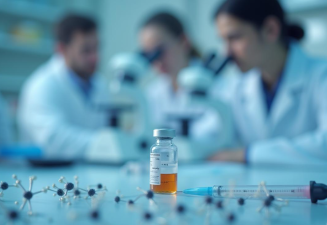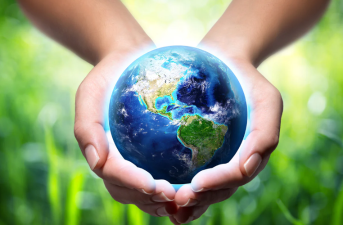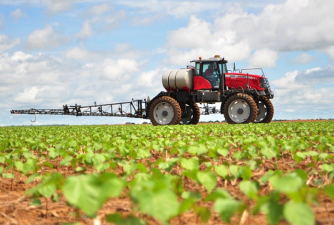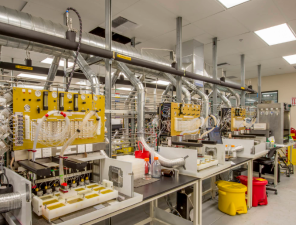In 2025, the biotechnology field has ushered in unprecedented breakthroughs in multiple fields. These breakthroughs have not only profoundly changed our medical and health system, but also widely penetrated into environmental protection, agricultural production, food safety and even lifestyle, injecting new impetus into the sustainable development of human society.
In 2025, the biotechnology field has ushered in unprecedented breakthroughs in multiple fields. These breakthroughs have not only profoundly changed our medical and health system, but also widely penetrated into environmental protection, agricultural production, food safety and even lifestyle, injecting new impetus into the sustainable development of human society.
Gene editing:

The moment of breaking the wall of precision medicine
Gene editing technology is becoming the core tool of precision medicine, and its clinical transformation has entered the acceleration stage. CRISPR in vivo therapy, targeted repair of genetic diseases, and CAR-T therapy for solid tumors are advancing in parallel, and the global market size is reaching US$2.23 billion at an annual growth rate of 18.7%. China's E-Gene's ET-01 therapy has been approved for clinical use, and a single treatment can significantly improve the symptoms of patients with β-thalassemia; Intellia's NTLA-2001 has caused a sharp drop in pathogenic proteins by 93%. These breakthroughs confirm the precision revolution of gene scissors.
Technology iteration is breaking through the application bottleneck:
The new CRISPR-Cas9 delivery system controls the off-target rate below 0.1%, and the FDA's RMAT fast track shortens the clinical cycle of gene therapy by 40%. When we witness these breakthroughs, we should be more aware that maintaining the current genome stability is to create the best application scenario for future gene therapy.
At the same time, breakthroughs in stem cell therapy technology have also brought new possibilities for tissue repair and organ regeneration. Scientists have successfully cultivated a variety of human tissues and organs using stem cell technology, such as heart valves, skin, and even small livers and kidneys. These regenerated tissues and organs not only provide sufficient resources for transplantation surgery, but also greatly reduce the rejection reaction after transplantation, bringing better treatment effects and quality of life to patients.
Environmental protection:

Application of biotechnology in ecological restoration
In terms of environmental protection, biotechnology also shows great potential. Through advanced technologies such as high-throughput sequencing, scientists can have a deeper understanding of the composition and function of microbial communities, so as to develop microbial therapies for specific environmental problems.
For example, by regulating the microbial community in the soil, the soil quality can be effectively improved and plant growth can be promoted; by regulating the microbial community in the water body, the water quality can be purified and water pollution can be reduced.
In addition, the development of synthetic biology has also provided new ideas for environmental governance. By designing microorganisms with specific functions, pollutants can be efficiently degraded to achieve the restoration and protection of the ecological environment.
Agricultural production:

The role of biotechnology in improving yield and quality
In the field of agricultural production, the application of biotechnology has also achieved remarkable results. Through genetic engineering technology, scientists can cultivate crop varieties with higher yields, better disease resistance and stress resistance. These new varieties can not only improve the yield and quality of crops, but also reduce the use of pesticides and fertilizers, and reduce the impact of agricultural production on the environment.
The development of synthetic biology has also brought new opportunities for agricultural production. By designing microorganisms or enzyme preparations with specific functions, the agricultural production process can be optimized and resource utilization efficiency can be improved.
Lifestyle:

The popularization of biosensor technology and telemedicine
With the continuous advancement of biosensor technology, telemedicine is gradually becoming a reality. Various wearable devices and implantable sensors can monitor human physiological indicators such as heart rate, blood pressure, blood sugar, etc. in real time, and transmit data to doctors or medical institutions in real time.
The popularization of this technology not only enables patients to receive medical monitoring and treatment more conveniently, but also greatly improves the utilization efficiency of medical resources and the accuracy of diagnosis and treatment.
Biosensor technology has also shown a wide range of application prospects in the fields of sports and fitness, mental health, etc., providing people with more personalized and convenient health management services.
Biomanufacturing:

The rise of new productivity
As an important part of new productivity, biomanufacturing is gradually changing our production and lifestyle. Through biotechnology, microorganisms can be programmed to produce chemicals, compounds and a variety of industrial materials.
This production method has the advantages of low energy consumption, low pollution and high efficiency, and is an important direction for the development of the manufacturing industry in the future. For example, microbial fermentation technology can produce high-performance bio-based materials, which are not only excellent in performance, but also environmentally friendly and degradable, and are widely used in construction, new energy, textiles and other fields.
The rise of biomanufacturing has not only promoted the development of related industries, but also provided new impetus for the sustainable development of human society.
The application of biotechnology is everywhere, and it is driving the progress and development of human society at an unprecedented speed. We have reason to believe that in the days to come, with the continuous innovation and improvement of biotechnology, our lives will become better, healthier and more sustainable.

